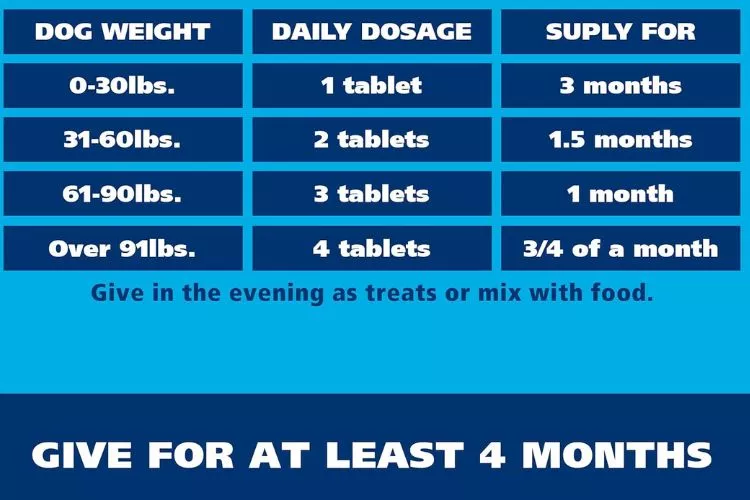We all hold our furry friends’ well-being closely to our hearts, but uncertainties can sometimes unsettle us. One significant concern is the potential risk or benefits of using substances like melatonin, a hormone supplement often used to regulate sleep in humans. Will 10 mg of melatonin hurt a dog?
Dive into this comprehensive analysis where we unravel the impacts, side effects, and safety guidelines of administering melatonin to dogs.

🐾 Will 10 mg of melatonin hurt a dog?
Melatonin is generally safe for dogs and can be used as a supplement to treat certain health conditions, a 10mg dose may not be appropriate for all dogs. The recommended dosage varies depending on the dog’s size, weight, and specific condition being treated.
Generally, veterinarians suggest using a lower dose per pound of body weight (0.5 – 1.5 mg for every 10 pounds), which means the 10mg dosage might be more suitable for a larger dog weighing between 60 to 100 pounds.
Administering an improper dose can lead to unwanted side effects such as drowsiness, gastrointestinal problems, or changes in behavior. These side effects are generally mild but could become severe if the dosage is far from the optimal amount.
It’s important to consult a veterinarian before using melatonin for your dog to assure the proper dosage and safeguard against any potential drug interactions.
In summary, while 10mg of melatonin may not necessarily hurt a dog, it is essential to determine the appropriate dosage based on your dog’s specific needs and always consult a veterinarian before giving any supplement or medication.
🐾 What happens if a dog eats a 10 mg melatonin?
If a dog ingests 10 mg of melatonin, the effects can vary based on the size and weight of the dog. For larger dogs, 10 mg doses are unlikely to cause harm. Smaller dogs however, might experience negative effects since the dosage is higher than the recommended safe limits.
Symptoms following a large dose of melatonin can occur within 20 to 30 minutes and may involve vomiting, diarrhea, and excessive sleepiness due to the sedative effects of the supplement.

Although it’s unlikely to be fatal, an overdose might result in serious symptoms requiring urgent veterinary attention.
Additional side effects can include changes in fertility, gastric upset, stomach cramps, increased heart rate, itching, and confusion.
However, individual reactions can vary and may include other rare side effects as well. If your dog has ingested a higher dose than recommended, it’s prudent to contact your veterinarian immediately
🐾 Melatonin for dogs dosage chart by weight
Here is a general guideline for melatonin dosage for dogs according to their weight:
- Dogs under 10 lbs: 1-2 mg of melatonin
- Dogs 10-25 lbs: 2-3 mg of melatonin
- Dogs 25-50 lbs: 3-6 mg of melatonin
- Dogs 50-100 lbs: 6-12 mg of melatonin
Please note these are general guidelines and individual dog’s needs may vary. It’s always recommended to consult with a veterinarian before starting any new supplement regimen for your pet.
Disclaimer: The following is a general guideline from previously available knowledge and by no means should replace consultation with a professional veterinarian. Every dog is unique and may respond differently to different dosages or might have existing health conditions that can alter the suitability of melatonin. Always consult with a certified veterinarian before administering any medication to your dog.

Melatonin is often used in treating anxiety and other similar disorders in dogs. The dose can vary based on the size of your dog, and the specific ailment being treated. Here are some general guidelines:
- For dogs under 10 lbs, the common dosage recommendation is 1 mg.
- For medium-sized dogs (10-25 lbs), a dose of around 1.5 mg is often used.
- Larger dogs, weighing 26-100 lbs, may be given around 3 mg of melatonin.
- For dogs over 100 lbs, doses of 3-6 mg can be used.
These doses are usually given up to three times per day, but the frequency should be tailored to the specific needs of your dog and should always be determined by a vet.
It’s important to note that duration, frequency, and dosage can vary based on the type, size, age, and overall health of your pet. Furthermore, melatonin should not be used without direct veterinary oversight and guidance.
Additionally, quality matters when it comes to supplements. Always purchase supplements from reliable and trusted sources. It’s advantageous to use a brand recommended by your vet, as not all brands regulate their products to ensure they contain the listed amounts of ingredients.
Even though melatonin is typically safe for use in dogs, it can come with several potential side effects, including sleepiness, changes in reproductive cycles, and gastrointestinal upset.
In conclusion, it is crucial to consult with your pet’s healthcare provider to understand the benefits, risks, and implementation of a melatonin regimen. They will be able to guide you in making the best decision for your pet’s health and wellbeing.
🐾 Can you give a dog melatonin everyday?
Melatonin, a naturally occurring hormone, is generally considered safe for regular use in dogs when administered at the appropriate dosage. It is commonly used to help dogs cope with stress and separation anxiety, as well as sleep issues, particularly those related to anxiety.

However, always consult your vet before giving melatonin to your dog on a daily basis. Dosages depend on a dog’s size, condition, and individual needs. Overdosing can lead to potential side effects like lethargy, digestive upset or unusual changes in behavior.
While melatonin is an over-the-counter supplement, it’s crucial to remember that not all products are made the same. Some may contain additional ingredients, such as xylitol, which can be harmful to dogs. Always ensure you’re using a product designed for dogs or approved by your vet.
In conclusion, yes, a dog can take melatonin every day under the guidance of a veterinarian, provided that dosage is appropriate and the product is safe for dogs to consume.
🐾 Pros and cons of melatonin for dogs
Melatonin is a hormone naturally produced in animals, including humans, that regulates sleep cycles. Veterinarians may prescribe or suggest melatonin supplements for various conditions in dogs.

Pros
- Regulating Sleep Patterns: Melatonin can help manage sleep disorders in dogs, especially senior dogs suffering from insomnia due to aging.
- Stress and Anxiety: It might be helpful in reducing anxiety and stress-related disorders in dogs such as separation anxiety or noise phobias.
- Alopecia: Melatonin has been used to treat certain types of alopecia (hair loss) in dogs.
- Easy to Administer: It’s available in multiple forms including pills, liquids, and chewable tablets that can be easily administered.
- Available Over the Counter: Melatonin does not necessarily require a prescription, and can be bought over-the-counter.
Cons
- Various Side Effects: Dogs might experience side effects such as increased heart rate, digestive issues, changes in fertility, and drowsiness.
- Interactions with Other Medications: If your dog is on other medications, melatonin could potentially interact with them and cause unwanted effects.
- Not Regulated: Over-the-counter melatonin supplements are not regulated by the FDA. The doses can vary widely between brands and products.
- Long-term Effects Unknown: The effect of long-term use of melatonin in dogs is not well-known. It’s important to use it under the direction of your veterinarian.
- Not Suitable for All Dogs: Dogs with certain pre-existing conditions, such as liver or kidney issues, should not take melatonin.
Disclaimer: The above information is based on general knowledge and does not constitute veterinary advice. Always consult a professional before administering any medication to your dog.
You may also find helpful: Can bordetella vaccine kill a dog?
🐾 frequently asked questions (FAQs)
Yes, a dog can get sick from too much melatonin. While melatonin is generally safe for dogs in the correct doses, an overdose may lead to certain side effects. These can include digestive upset, increased heart rate, changes in behavior such as confusion or sleepiness, and, in rare cases, an allergic reaction. It is important to always follow the veterinarian’s dosage instructions and observe your dog for any adverse reactions after administration.
The effects of melatonin can usually be observed within about 30 to 60 minutes in dogs. However, the full benefits, particularly for conditions like anxiety or insomnia, might need regular administration over a longer period as directed by a veterinarian. This variation is based on factors like your dog’s overall health, metabolism rate, size, and the specific condition for which melatonin is being given.
Melatonin gummies may contain additives, sweeteners, or xylitol, which can be harmful to dogs. Therefore, it is not recommended to give dogs melatonin gummies meant for human use. There are specially-formulated melatonin supplements for dogs available in pet health stores. It’s important to use products specifically designed for dogs and always consult your vet for appropriate dosage and product information.
The safe dosage of melatonin depends on your dog’s size and health conditions. Typically, for larger dogs weighing over 100 lbs, a dose of 3-6 mg can be used. However, 5mg could potentially be an excessive dose for smaller dogs and could cause side effects. Always consult with a veterinarian before administering any medication to your dog to avoid adverse effects. Remember that dosage and frequency should be determined by a vet.
Conclusion:
To answer the question “Will 10 mg of melatonin hurt a dog” simply, I would say, Melatonin is generally safe for dogs, administering a 10mg dose might be appropriate for only the largest dogs and could potentially cause negative effects in smaller canines.
The optimal dosage varies based on the dog’s weight, age, overall health status, and the specific condition being treated.
Overdosing can lead to side effects like digestive upset, changes in behavior, or more serious problems.
As such, it is vitally important to consult with a veterinary professional before introducing any new supplement or medication into your pet’s regimen. Always prioritize your pet’s safety and health.
